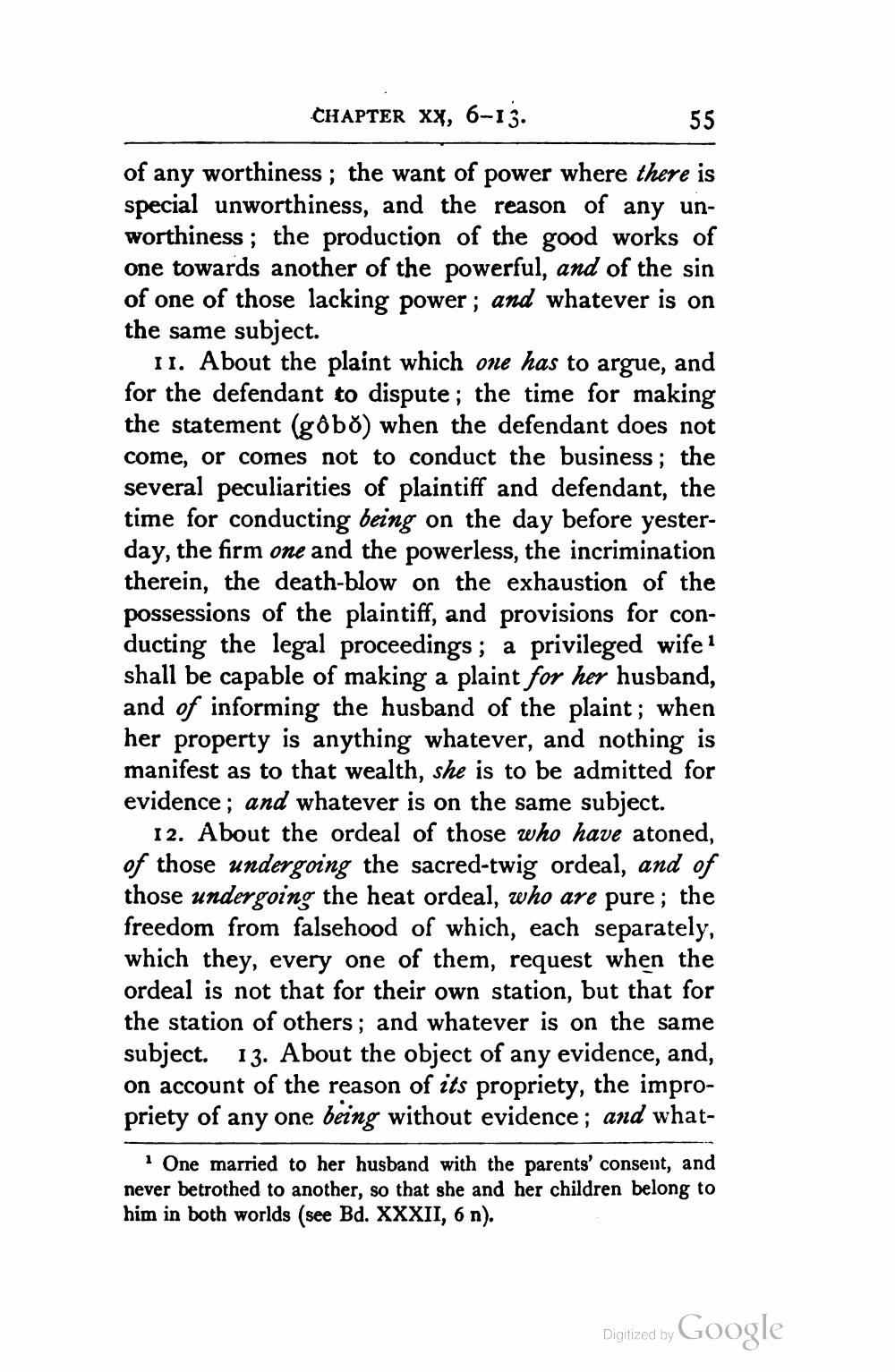________________
CHAPTER XX, 6-13.
55
of any worthiness; the want of power where there is special unworthiness, and the reason of any unworthiness; the production of the good works of one towards another of the powerful, and of the sin of one of those lacking power; and whatever is on the same subject.
II. About the plaint which one has to argue, and for the defendant to dispute; the time for making the statement (gôbo) when the defendant does not come, or comes not to conduct the business; the several peculiarities of plaintiff and defendant, the time for conducting being on the day before yesterday, the firm one and the powerless, the incrimination therein, the death-blow on the exhaustion of the possessions of the plaintiff, and provisions for conducting the legal proceedings; a privileged wife1 shall be capable of making a plaint for her husband, and of informing the husband of the plaint; when her property is anything whatever, and nothing is manifest as to that wealth, she is to be admitted for evidence; and whatever is on the same subject.
12. About the ordeal of those who have atoned, of those undergoing the sacred-twig ordeal, and of those undergoing the heat ordeal, who are pure; the freedom from falsehood of which, each separately, which they, every one of them, request when the ordeal is not that for their own station, but that for the station of others; and whatever is on the same subject. 13. About the object of any evidence, and, on account of the reason of its propriety, the impropriety of any one being without evidence; and what
1 One married to her husband with the parents' consent, and never betrothed to another, so that she and her children belong to him in both worlds (see Bd. XXXII, 6 n).
Digitized by
Google




